"We’ve been able to process and make sense of a quarter of a million tweets in the aftermath of Typhoon Yolanda. Using both AIDR (still under development) andTwitris, we were able to collect these tweets in real-time and use automated algorithms to filter for both relevancy and uniqueness. The resulting ~55,000 tweets were then uploaded to MicroMappers (still under development). Digital volunteers from the world over used this humanitarian technology platform totag tweets and now images from the disaster (click image below to enlarge). At one point, volunteers tagged some 1,500 tweets in just 10 minutes. In parallel, we used machine learning classifiers to automatically identify tweets referring to both urgent needs and offers of help. In sum, the response to Typhoon Yolanda is the first to make full use of advanced computing, i.e., both human computing and machine computing to make sense of Big (Crisis) Data"
Get Started for FREE
Sign up with Facebook Sign up with X
I don't have a Facebook or a X account
 Your new post is loading... Your new post is loading...
 Your new post is loading... Your new post is loading...

Dr. Helen Teague's curator insight,
November 23, 2014 4:28 PM
Howard Rheingold's insight: "A promising new site. They name Vannevar Bush, J.C.R. Licklider, and Douglas Engelbart as 'the canon,'" their blog continues to develop

Technology Spot's comment,
September 26, 2013 11:58 PM
Interested in Technology? Just visit :http://nipun-frendshipspot.blogspot.com/

roberto gilli's curator insight,
September 18, 2013 3:54 AM
KM is related to talking objects and talking places. When an object (or a place) is designed to dialogue with the user you have to creare a Knowledge Base. Design a dialogue is always a build-observe-change feedback loop.

Vivianne Amaral's curator insight,
August 12, 2013 6:42 PM
Vai acontecer em junho de 2014 e reunir grandes nomes da ciência de redes, como Ducan Watts e pesuisadores sobre aprendizagem em rede. 
Leah Lesley Christensen's comment,
August 31, 2013 9:15 PM
hmm yet another way to make more human guineau pigs ?

Ingrid Larik's curator insight,
August 10, 2013 3:08 AM
1 + 1 = 3 - complexe problemen vragen om een systemische aanpak én collectieve wijsheid (en dat stata niet gelijk aan groepsdenken als dusdanig) vanuit co-creatie
Guillermo Cerceau's comment,
August 19, 2013 6:30 PM
I feel that the lecture leaves out all matters related to political power, precisely THE issue of cities and collaboration, I mean, that is what the "polis" of politics means.

Muriel Flanagan's curator insight,
July 23, 2013 8:48 AM
Engelbart's Collective IQ should resonate with all of us who are interdependant in our workflows - and that means all of us. Individuals need to be able to work as effectively as possible with others, as that allows for leveraging the collective intelligence. As important as individualism is, one cannot underscore the power and importance of collaborating to the most appropriate conclusion in an increasingly fast-paced world. 
Marilyn Korhonen's curator insight,
July 23, 2013 9:42 AM
Interesting concept. This is definitely relevant to collaborative research.

Jan Schwartz's curator insight,
July 23, 2013 10:40 AM
Not necessary about technology, but certainly about education. Thanks to Howard Reingold for the scoop. |
kitty de bruin's curator insight,
October 25, 2013 4:15 AM
co creating, such a nice way to work together 
irene's curator insight,
January 10, 2014 9:16 AM
Perché il futuro del Crowdsourcing va in direzione della cura, sintesi e cose varie.

IT's curator insight,
October 6, 2013 7:58 AM
Ještě, že IBM kdysi vznikla a věnuje se Kognitvním systémům na které se budeme moci brzy spolehnout, každý den, když budeme chtít efektivně a jednoduše vypnout SMART televizi.

Dmitrii Tokarenko's curator insight,
September 8, 2013 8:55 AM
Spectatular coordination abilities are endowed to animals. Starlings demonstrate the power of coordination by chasing away a predator in their act of murmoration (see http://youtu.be/jfqwHT3u1-8?t=14m29s). As Don Tapscott puts it: "... there is a leadership but there is no one leader ...". We humans used to rely on technologies and IFTF presents us with their foresight for tools of coordination. Tanks to IFTF I can now go through proposed 4-step process to get value from technologies available in the future. 
ghbrett's curator insight,
September 30, 2013 10:57 AM
See @Howard Rheingold's comments that apply to this worthwhile article.

Keith Hamon's curator insight,
August 24, 2013 9:35 AM
All the cool stuff is on the boundaries in between. Always has been. |















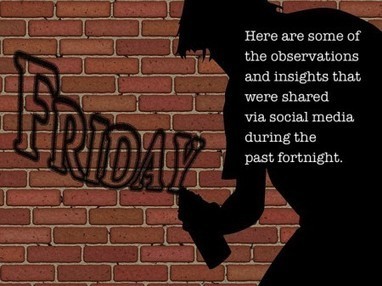

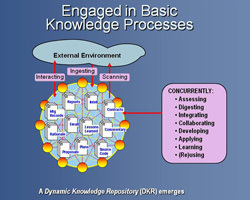
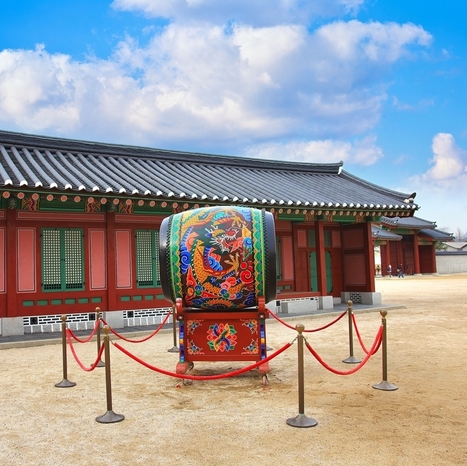
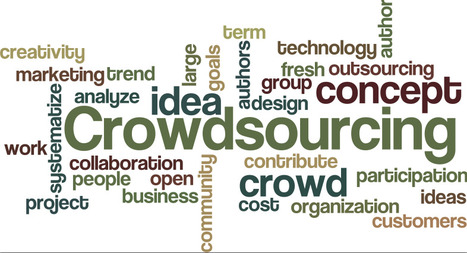






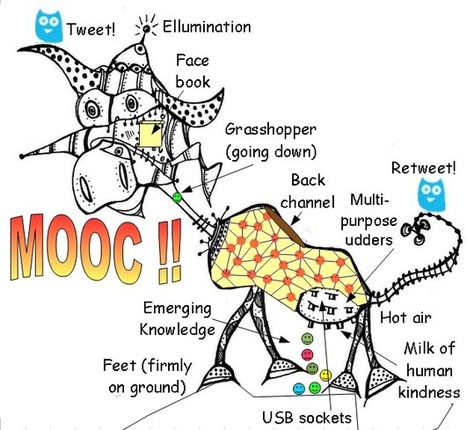








Crisis mapping and tools for organizing emergent collective response to disasters is combining human and machine filters to deal with large numbers of responses in the crucial early hours after a crisis -- in this case, Typhoon Yolanda